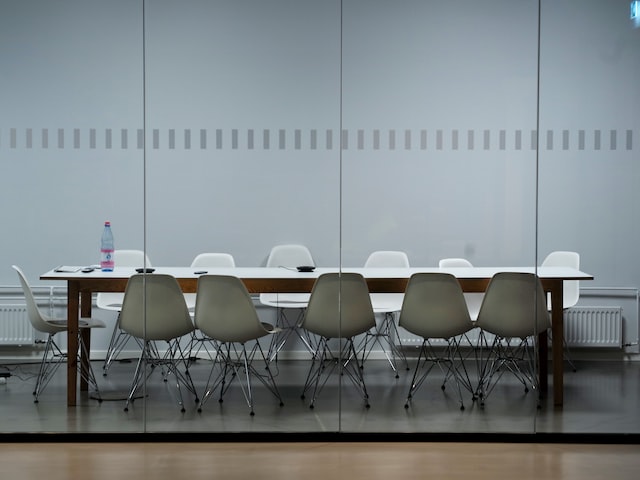Whether you’re looking for a meeting room for your business or personal use, there are a few things to keep in mind. You’ll want to consider the aesthetics, the technology, and the location. You’ll also want to ensure the room is comfortable for all attendees.
Location matters
The location of your meeting room can make the difference between a successful meeting and a disaster. Whether you’re looking for a place to hold a meeting or a conference, choosing the right location can improve your attendees’ overall experience.
When renting a meeting room, you should consider four factors: cost, size, layout, and amenities. You can choose from many options, but the most important thing is finding the one that works best for your budget.
A small meeting room can be a good choice for ten or fewer people. It may include a breakout space, kitchen, and natural light. However, a larger area is more practical if you plan a large presentation.
When renting a meeting room, make sure it’s clean and tidy. You also want to ensure that it offers a quiet and comfortable atmosphere.
Cancellation policies
If your organization or business needs to use a library meeting room, you must understand the cancellation policies and procedures. Follow these policies and procedures to avoid the revocation of your registration.
Reservations are required for Meeting Room Rental MA. It’s to ensure you’ll have the space on the day of your meeting. But it’s also important to know that the Library will only cancel your reservation if you offer at least 72 hours notice.
The rental fee is $60 per hour for businesses and individuals. For non-profit groups, the cost is $20 per hour.
For regularly meeting groups, the fee is due 30 days before the start of the meeting. Payment is processed by secure online credit card processing.
Aesthetics matter
There are many reasons to consider meeting room rental options, but the aesthetics factor is one of the most significant factors affecting a meeting’s success. Having a well-appointed space for conferences and other events can mean the difference between a good day and a great one. It is especially true if you plan a large-scale meeting or business gathering. The best place to start is by determining what sort of room you need and what you want it to look like. Ideally, you’ll want a site conducive to high-quality, well-ordered conversations. Make sure that your chosen venue can accommodate full-day meetings without a hitch. It’s typical for the average hotel room to have just fifteen people at round tables.
Affordability matters
A meeting room is the stuff of business. The most effective ones are also a pleasure to behold. When choosing the perfect space for your next conference, consider some critical factors, like the size of your team, your budget, and the amount of time you have to devote to putting together your conference. Likewise, remember to factor in your company’s culture. If your employees are happy, they’ll be more inclined to work harder for you, leading to greater productivity and lower turnover rates.
Getting to and from your chosen venue is a big deal, so make sure you plan your route accordingly. If you’re traveling for business, you should snag a hotel room for the night. It will save time and hassle, especially if you’re a first-timer.
Technology matters
When renting a meeting room, it’s essential to consider the right technology. Not only can this help with communication and collaboration, but it can also save you time and money.
If you’re planning to rent a meeting room, ask about video conferencing and audiovisual equipment. These can increase your productivity and can even help you attract new clients.
The proper meeting technology can reduce background noise and feedback. Additionally, it should be easy to use. You’ll want input from relevant teams before deciding on the best options for your meetings.
In addition, you’ll want to consider a hybrid workplace. With more and more businesses adopting a work style that blends traditional office functions with virtual ones, you’ll need to plan accordingly.

